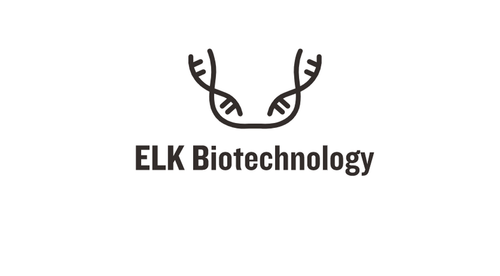Product Description
Human Presenilin 1 (PSEN1) ELISA Kit | AE25550HU | Abebio
Species Reactivity: Human (Homo sapiens)
Abbreviation: PSEN1
Alternative Name: AD3; FAD; PS-1; S182; OTTHUMP00000180589
Application: ELISA
Range: 0.312-20 ng/mL
Sensitivity: 0.114 ng/mL
Intra-Assay: ≤5.1%
Inter-Assay: ≤9.2%
Recovery: 0, 87
Sample Type: Serum, Plasma, Other biological fluids
Detection Method: Sandwich
Analysis Method : Quantitive
Test Principale: This assay employs a two-site sandwich ELISA to quantitate PSEN1 in samples. An antibody specific for PSEN1 has been pre-coated onto a microplate. Standards and samples are pipetted into the wells and anyPSEN1 present is bound by the immobilized antibody. After removing any unbound substances, a biotin-conjugated antibody specific for PSEN1 is added to the wells. After washing, Streptavidin conjugated Horseradish Peroxidase (HRP) is added to the wells. Following a wash to remove any unbound avidin-enzyme reagent, a substrate solution is added to the wells and color develops in proportion to the amount of PSEN1 bound in the initial step. The color development is stopped and the intensity of the color is measured.
Product Overview: Probable catalytic subunit of the gamma-secretase complex, an endoprotease complex that catalyzes the intramembrane cleavage of integral membrane proteins such as Notch receptors and APP (beta-amyloid precursor protein) . Requires the other members of the gamma-secretase complex to have a protease activity. May play a role in intracellular signaling and gene expression or in linking chromatin to the nuclear membrane. Stimulates cell-cell adhesion though its association with the E-cadherin/catenin complex. Under conditions of apoptosis or calcium influx, cleaves E-cadherin promoting the disassembly of the E-cadherin/catenin complex and increasing the pool of cytoplasmic beta-catenin, thus negatively regulating Wnt signaling. May also play a role in hematopoiesis. Alzheimer's disease (AD) patients with an inherited form of the disease carry mutations in the presenilin proteins (PSEN1; PSEN2) or in the amyloid precursor protein (APP) . These disease-linked mutations result in increased production of the longer form of amyloid beta (main component of amyloid deposits found in AD brains) . Presenilins are postulated to regulate APP processing through their effects on gamma secretase, an enzyme that cleaves APP. Also, it is thought that the presenilins are involved in the cleavage of the Notch receptor, such that they either directly regulate gamma secretase activity or themselves are protease enzymes. Multiple alternatively spliced transcript variants have been identified for this gene, the full-length natures of only some have been determined.
Stability: The stability of ELISA kit is determined by the loss rate of activity. The loss rate of this kit is less than 5% within the expiration date under appropriate storage condition. The loss rate was determined by accelerated thermal degradation test. Keep the kit at 37°C for 4 and 7 days, and compare O.D.values of the kit kept at 37°C with that of at recommended temperature. (referring from China Biological Products Standard, which was calculated by the Arrhenius equation. For ELISA kit, 4 days storage at 37°C can be considered as 6 months at 2 - 8°C, which means 7 days at 37°C equaling 12 months at 2 - 8°C) .
 Euro
Euro
 USD
USD
 British Pound
British Pound
 NULL
NULL








